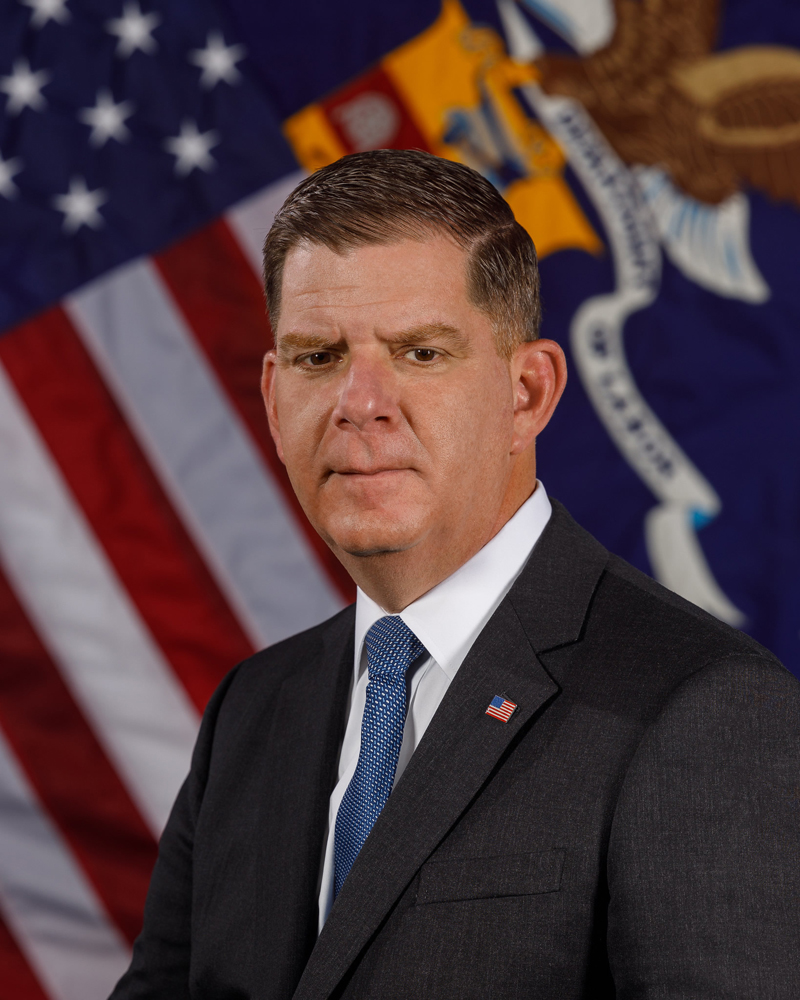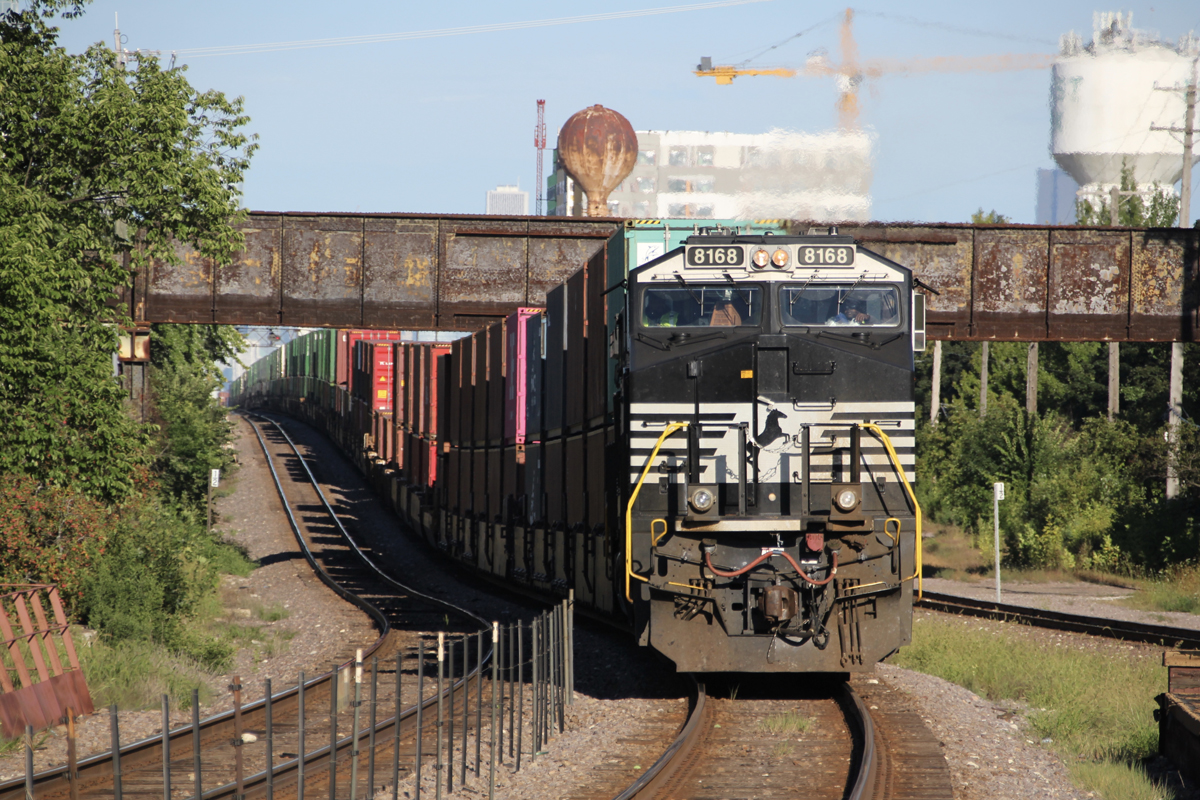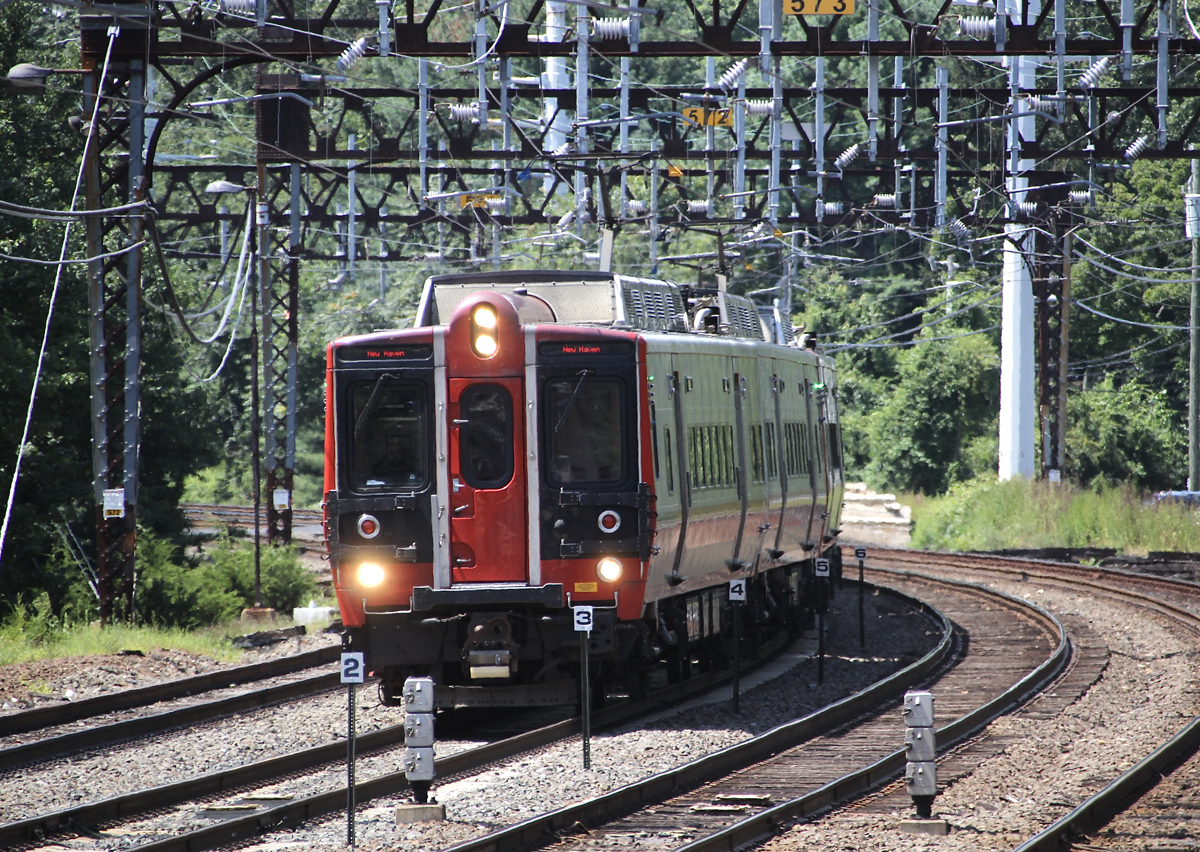
NEW YORK — U.S. Secretary of Labor Marty Walsh, credited by unions with a key role in the tentative agreement that averted a railroad strike in September, says he expects Congress will act to block a possible strike later this month.
Walsh made his comments on Friday to CNN, prior to the latest vote ratifying a national rail labor contract. The International Association of Machinists and Aerospace Workers District 19, which represents 4,900 rail worker, on Saturday announced it had approved a tentative deal by a 52%-48% margin [see “Machinists narrowly ratify …,” Trains News Wire, Nov. 5, 2022]
Just 52% of voters approved the agreement, after the union’s rank and file had turned down a previous deal.
The Brotherhood of Maintenance of Way Employes Division and Brotherhood of Railroad Signalmen have turned down tentative agreements, with the BMWED set to strike as soon as Nov. 19.
Walsh said his goal is to “get those two unions back at the table with companies and get this thing done,” and that a negotiated settlement is the best possible outcome. But if the two sides don’t reach an agreement, he said, “Congress will have to take action to avert a strike in our country.”
The BMWED is seeking paid sick leave for its members, which the railroads have previously rejected and did so again when the two sides reopened negotiations [see “Railroads reject maintenance of way workers’ request …,” Trains News Wire, Oct. 20, 2022].
In response to Walsh’s statement, the union told CNN, “Congress should not have to intervene. The railroads should provide paid sick leave to its employees. They have the money to do it, and it literally would cost them a penny of every dollar of record profits to provide it. It’s only 2% of what CSX, NS, and UP spent so far this year in stock buybacks. It’s literally nothing to them, yet they refuse to provide it.”














How exactly does Congress block a strike? Send armed guards to every railroad and force employees to work?
It’s part of the Railway Labor Act…if you really want to know how Congress does it…use Google, there’s plenty of information from the last time the railroad workers went on strike.
As for attrition and getting the younger crowd to work these jobs…at some point these will be the only jobs available and they won’t have unemployment to fall back on. So either they learn to work or they starve to death on the streets.
Thanks Gerald. I don’t think railroads want to hire a young man or a young woman who can’t get a job anywhere else so is starving to death on the streets.
This is the U.S., where you can receive more in cash and “benefits” than earning after-tax from a 40-hour/week minimum wage job. “Working” is unnecessary, if you don’t want to. “Somebody” always pays!
Answering my own question, basically, Congress really can’t magically end a strike… or at least not a walk-out.
https://www.freightwaves.com/news/what-happens-if-congress-blocks-the-railroad-strike
So much for JOBAMA as a friend of labor.
anybody want to bet that the SMART and BLE&T rank and file will approve the PEB termed proposed contract? The votes are already cast: the union leadership bowed to pressure from the federal executive branch to delay the announcement for two months conveniently until congress reconvenes post election. Arbitration can never SOLVE the quality-of-life issues; the rank-and-file will get nothing more than a token change if that is what congress rules. Rotating strikes are met with crippling embargos and lockouts as we have seen in the past. The companies have little fear of any fundamental change, it would be as mentioned a pittance to their bottom-line profit. It will not stop the rising rate of attrition and the ability to solve the crew shortages as new young hires quit at a record rate.
A contract agreement can be reached by the union heads and management or in this case the President annoucing the deal. However the real power lies with the rank and file or the union membership who votes on the new contract. If they vote against it, its back to the bargaining table to either make changes or totally negoiate a new deal. If all fails then a strike vote is called for and the union or unions can authorize a strike. Based on the discord and distrust between management and the rail unions, this is far from over and a strike is still a possibility. Unlike government or public sector employees who are in most cases barred from striking. the union employees are working for private interests and are free to strike at any time if they don’t get a new contract that meets their needs. With the current stormy climate over Washington and Congress and an uncertain future makeup after Tuesday, let’s see if Congress will really step in to avert a strike by the rail unions
Joseph C. Markfelder
The “real power”, to use your term, lies with the next generation of the American work force, which will vote “no” to enlisting for these jobs.
What is going on, didn’t the president tell us that it was a done deal negotiated by all concerned just a short while ago.
pay attention.
There were contracts negotiated, but they have to be ratified my the membership of the unions. Many of the unions have voted yes, but a few voted no which led to further negotiations.
no one wins a strike.seek binding arbitration